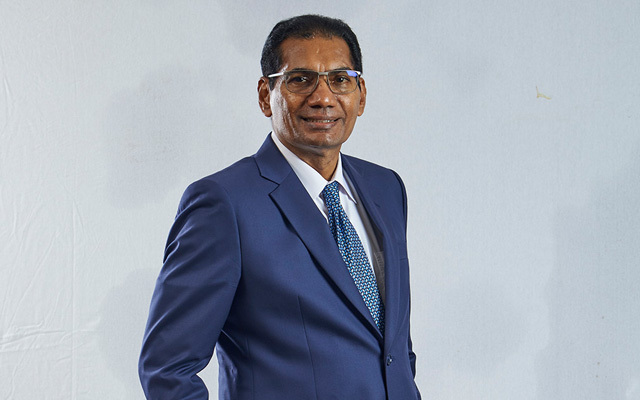M Gandhi, Malaysian Association Of Convention & Exhibition Organisers & Suppliers’ newly-appointed president, outlines plans to leverage Malaysia’s strengths, develop secondary cities, and navigate a changing Asian landscape

As the new president, what are your key priorities for the business events industry?
My key priorities are to build upon the past successes of past presidents and committees of the Malaysian Association of Convention & Exhibition Organisers & Suppliers (MACEOS), and to implement the Strategic Roadmap 2022-2030, which I helped to develop.
The first phase, the recovery from the pandemic, is now over. We are currently in the second phase, where business events are vital for economic development and nation-building. My priority is to create a unified vision within the industry, viewing business events not merely as standalone enterprises but as integral parts of the country’s economic development and nation-building efforts. This aligns with both federal and state government initiatives to develop Malaysia.
We aim to support these government efforts by attracting international events, conferences, and exhibitions to Malaysia and developing homegrown events that contribute to both national and state-level development.
How do you plan to further advance MACEOS and create more opportunities for members?
A way to create more opportunities is to expand the market size of business events, so that all our members across the country can benefit from the growth. A key strategy to do this is to further develop business events in secondary cities, outside of Kuala Lumpur.
According to the ICCA Asia Pacific ranking in 2023, Kuala Lumpur was ranked seventh with 52 in-person association meetings, while Kuching was ranked 18 with 23 meetings, while Penang was ranked 63 with six meetings.
While we also aim to improve Kuala Lumpur’s ranking, there are significant opportunities to develop Penang, Kuching, and new business event cities like Kota Kinabalu, which already has good infrastructure for hosting business events.
By developing secondary cities for business events which includes capacity building through training programmes, we can diversify and strengthen Malaysia’s position as a leading destination for business events, benefiting all our members. MACEOS has also been working hard to develop more trained professionals in organising conventions and exhibitions.
What trends and developments do you foresee shaping the business events industry in Asia over the next five years?
Asia faces a landscape fraught with geopolitical uncertainties, signalling a departure from business as usual. Despite these challenges, they also present new opportunities for stakeholders. Geopolitical shifts may prompt businesses in North Asia to explore relocation within the region. It is crucial to closely monitor these developments and align business events accordingly.
Furthermore, the rise of Artificial Intelligence (AI) is poised to significantly impact business events. Therefore, industry professionals must grasp AI advancements to further enhance service delivery and boost event productivity. However, as we embrace technology, there is a risk of undermining Asia’s distinct cultural strengths if we overly prioritise automation over human interaction. Thus, navigating these dual dynamics of geopolitical change and technological advancement will be pivotal for shaping the future of business events in Asia.
What factors contribute to Malaysia being perceived as an attractive destination for business events?
Malaysia’s unique selling proposition lies in its exceptional value for money. The country boasts top-tier infrastructure, and its business event suppliers are world-class.
I hope the Malaysian government will consider continuing the visa-on-arrival for Indians and Chinese citizens, as it will make it very easy for business event attendees from these two large countries to travel to Malaysia to attend events here.
What steps is MACEOS taking to promote sustainability within the industry?
We have designated this responsibility to our three highly capable vice presidents. Each vice-president is accountable for incorporating sustainability into their respective programmes.
One of the vice presidents, Yusno Yunos, who leads the Innovation portfolio, also oversees sustainability initiatives, as innovation and sustainability goals go hand in hand. The other vice presidents support Yusno’s efforts, ensuring a collaborative approach.
There is already a wealth of training and knowledge-sharing activities happening within MACEOS on this critical subject. But it is not just MACEOS taking the lead; event venues, organisers, suppliers, and the entire ecosystem focus on sustainability. The industry’s overall impact will naturally improve as these stakeholders collectively embrace sustainable practices.
What are the business events developments in Malaysia that you are particularly excited about?
Previously, business events venues were concentrated primarily in the Klang Valley. However, there have been exciting new developments across the country. Penang is launching the Penang Waterfront Convention Centre, and Kota Kinabalu now boasts the impressive Sabah International Convention Centre. Additionally, the Borneo Convention Centre Kuching has plans to double its size.
The government also recognises the significance of the business events industry and is engaging in discussions to advance it further. My vision is for MACEOS to actively facilitate the development of the business events industry in Malaysia, ensuring it continues to grow and thrive across the nation and in cooperation with our South-east Asian neighbours.





















